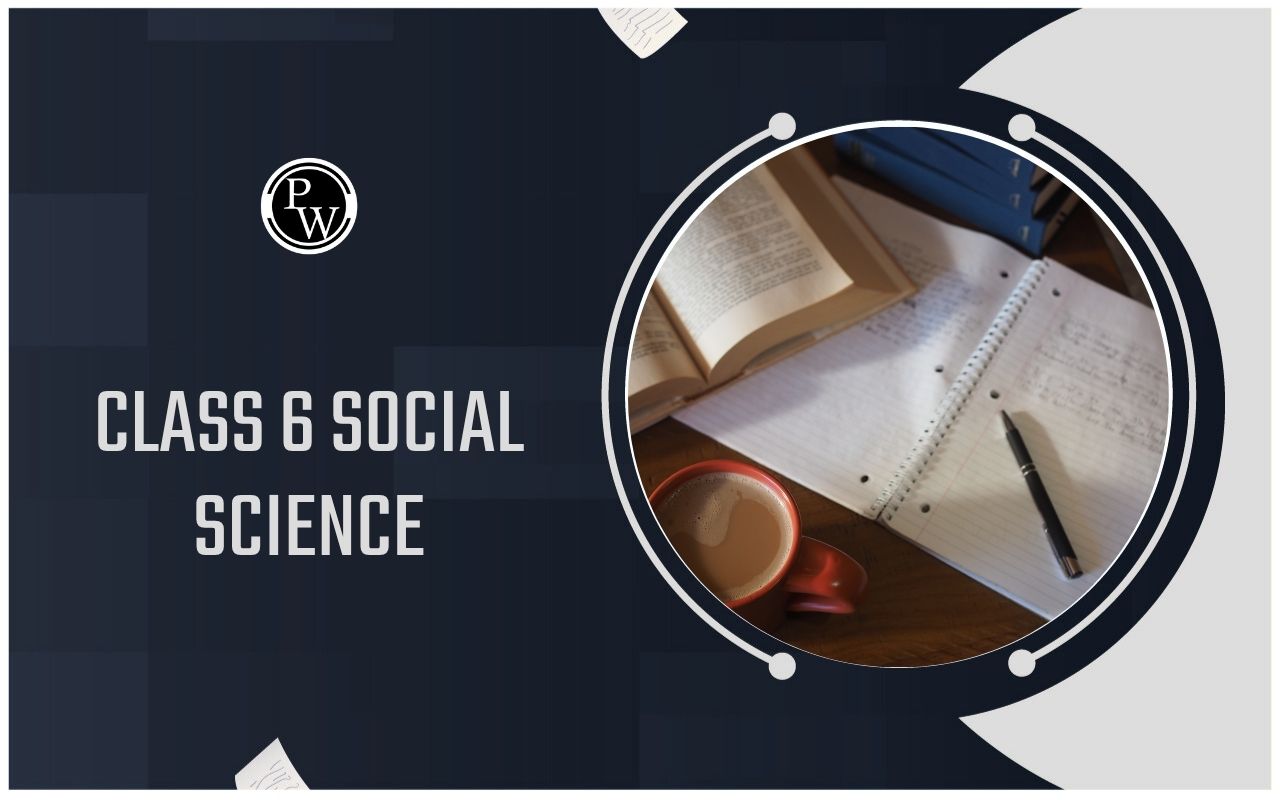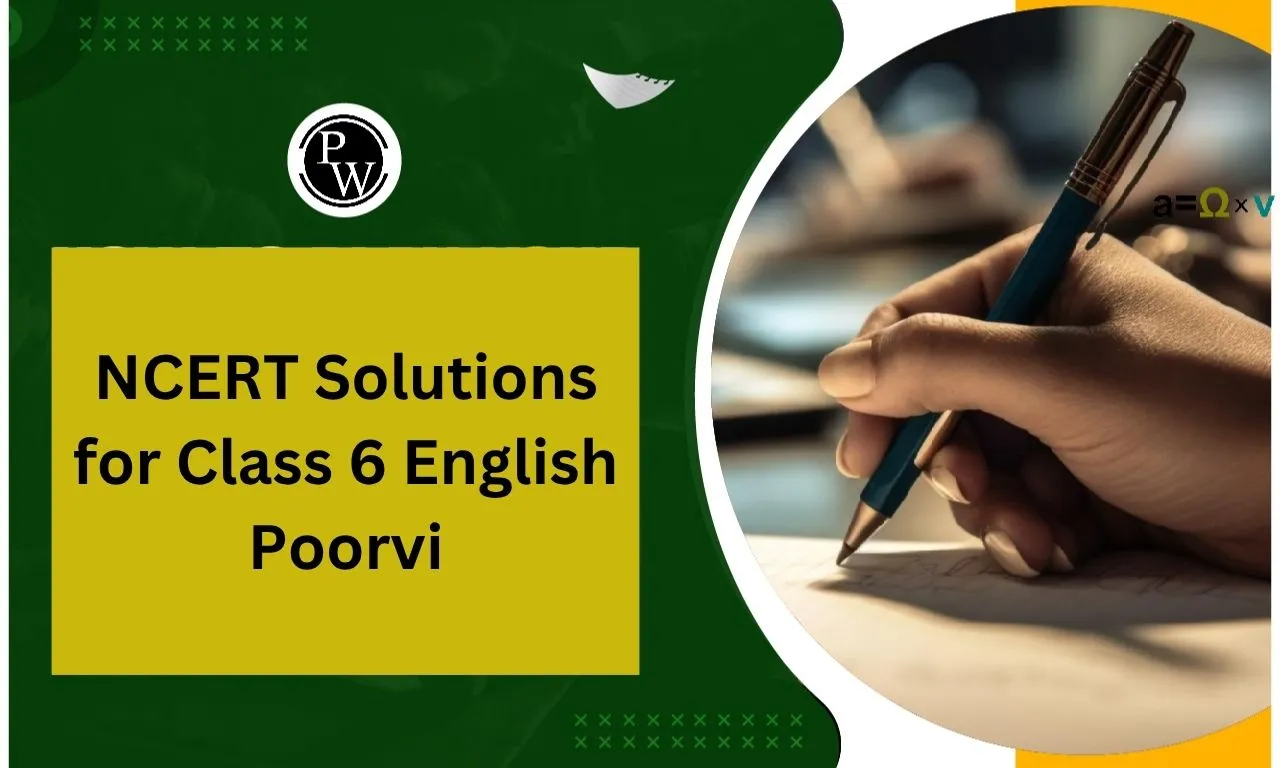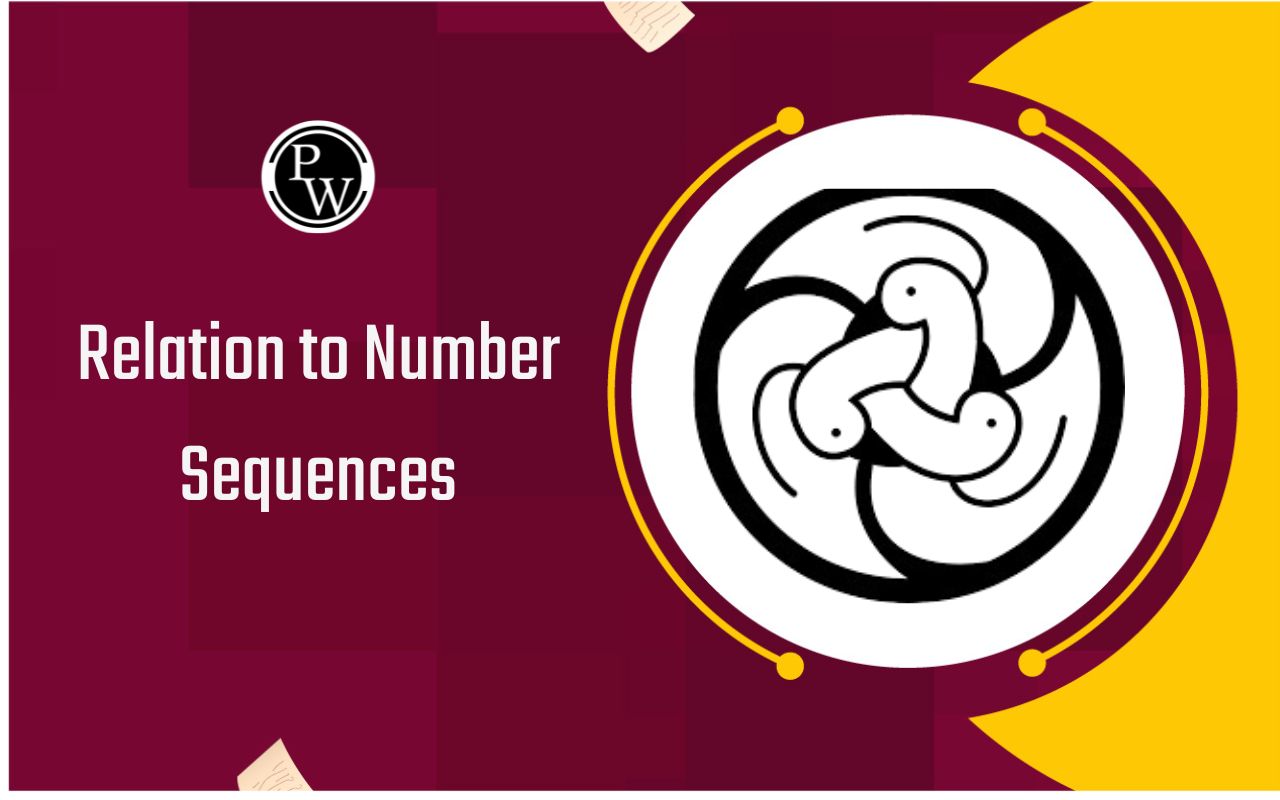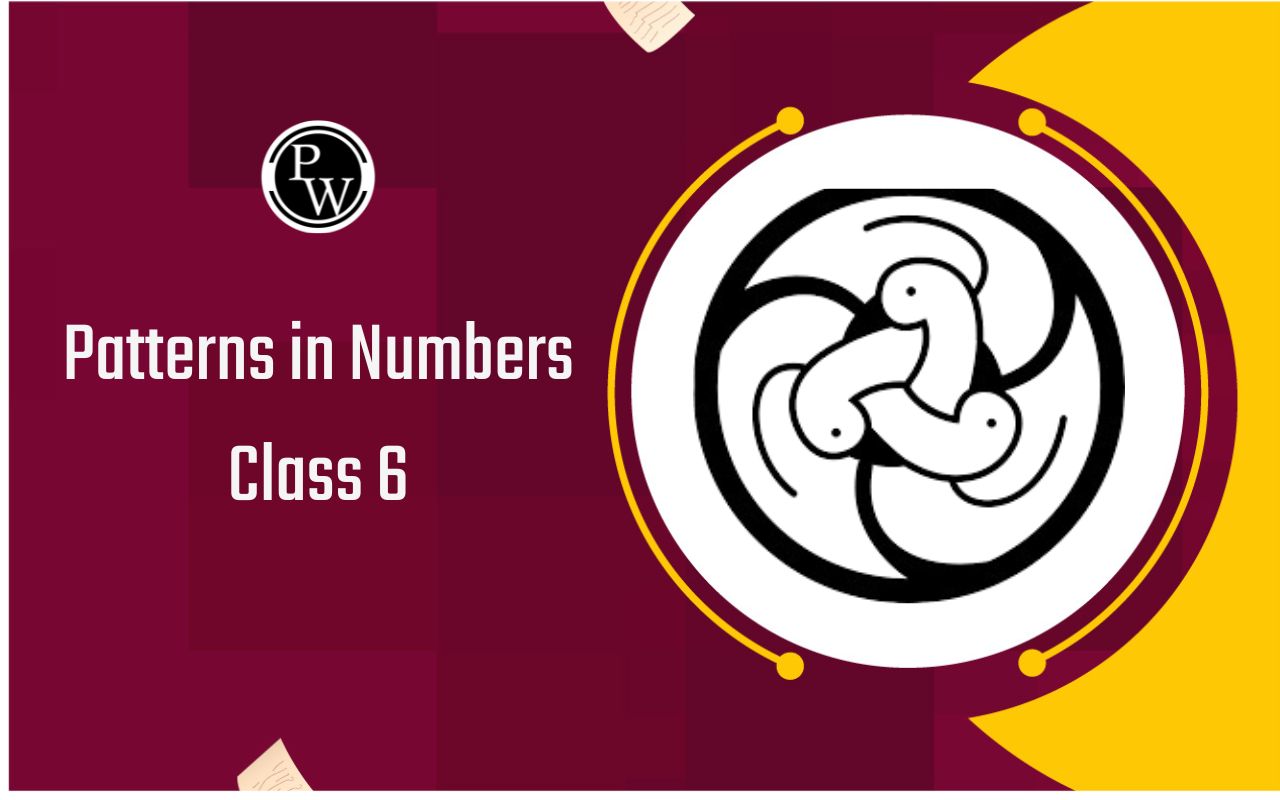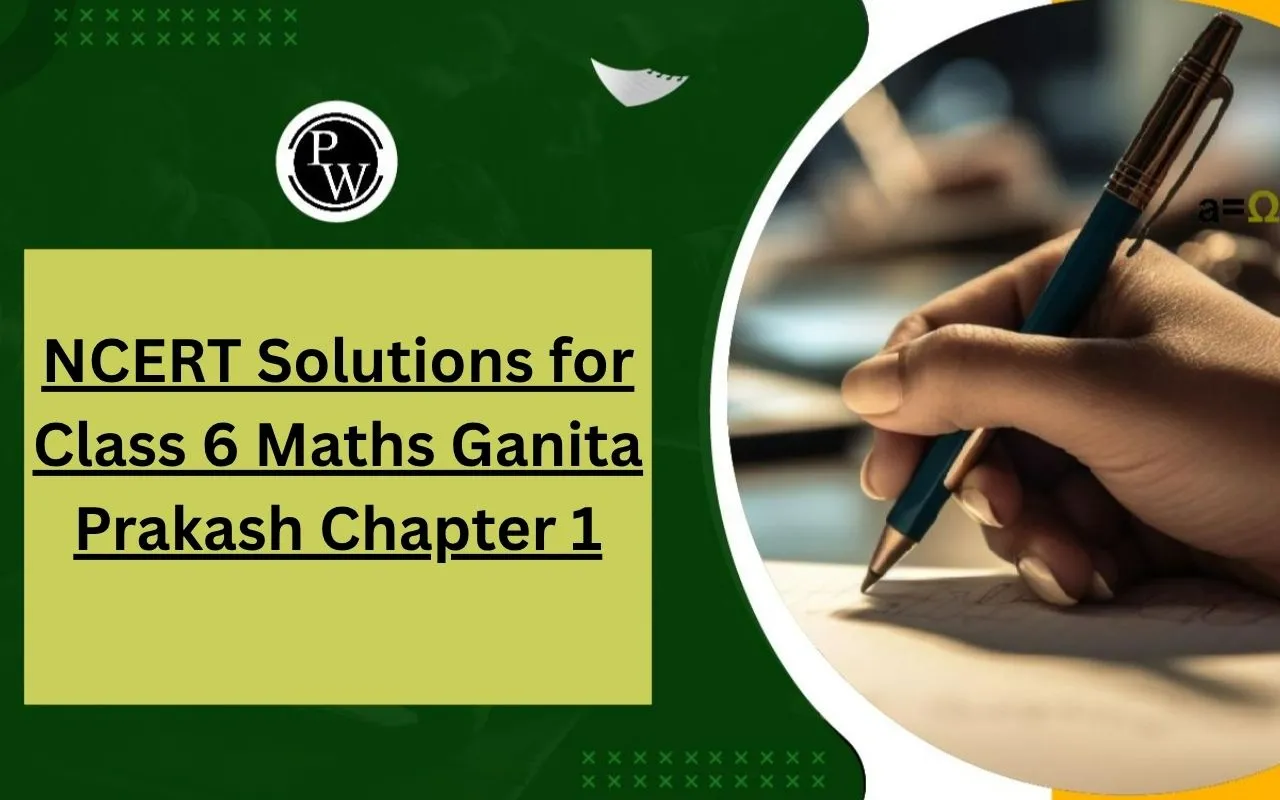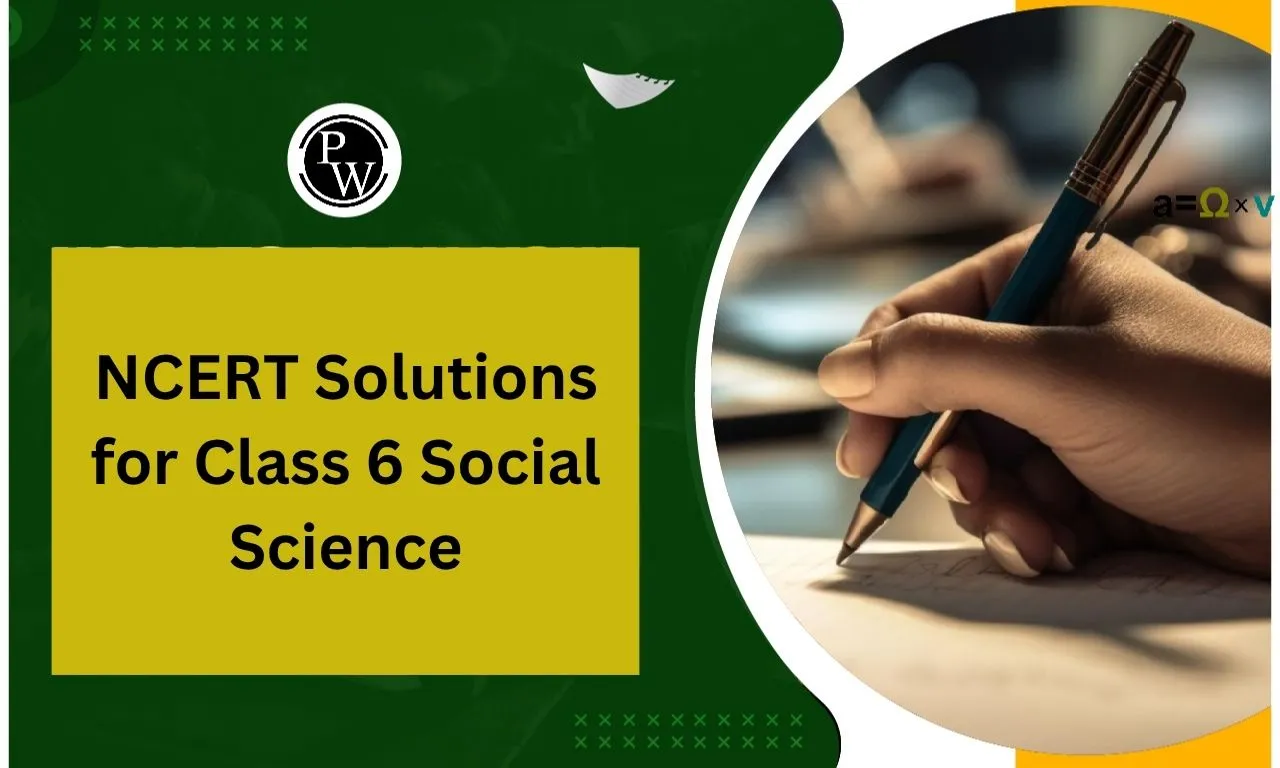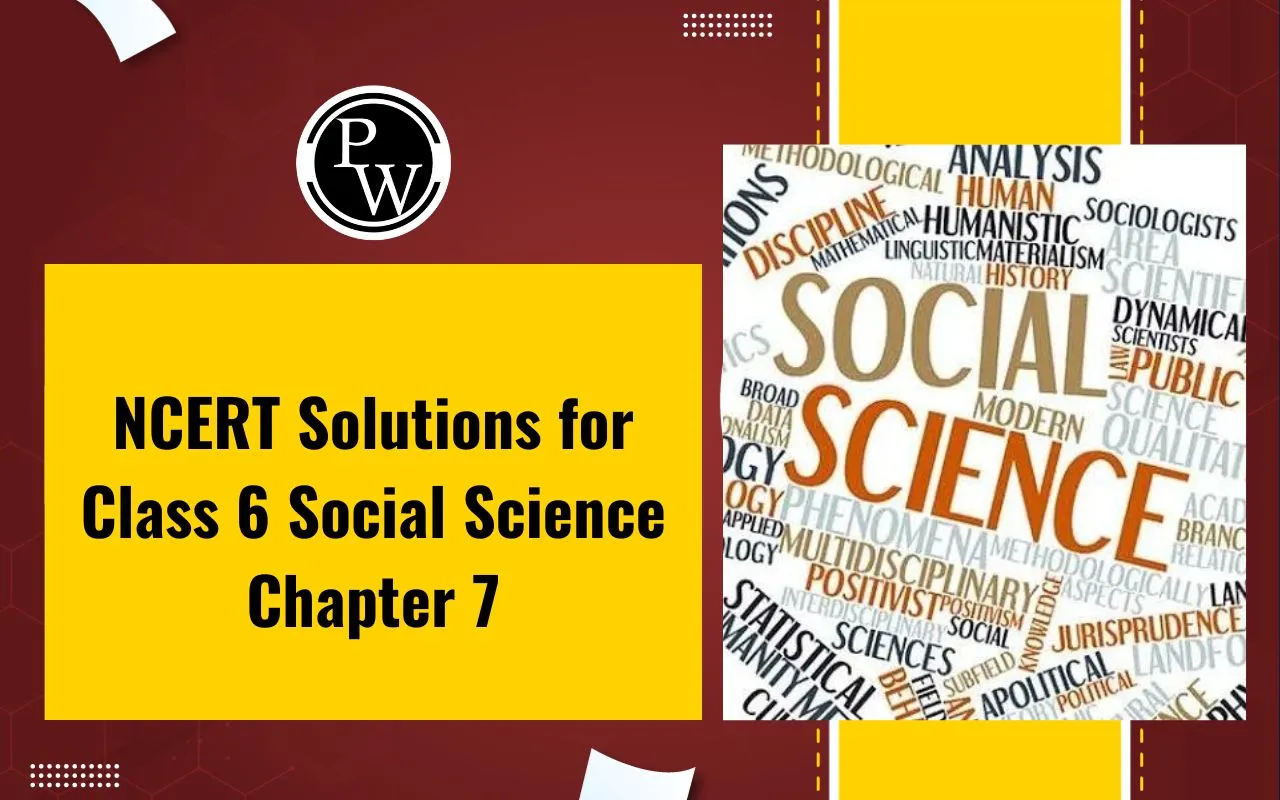
NCERT Solutions for Class 6 Social Science Civics Chapter 2
NCERT Solutions for Class 6 Social Science Civics Chapter 2: India is famous for having a variety of people who speak various languages and live together as a community. What sets India apart from other diverse nations is its unity, which has remained strong despite conflicts in society. People of different castes, creeds, religions, and genders coexist. However, are they all treated equally? Is there discrimination? Do stereotypes affect community harmony? Learn more about Diversity and Discrimination in Chapter 2 of CBSE Class 6 Civics. Additionally, we offer NCERT Solutions for Class 6 Social Science Civics Chapter 2 covering exercises in the book “Social and Political Life.”NCERT Solutions for Class 6 Social Science Civics Chapter 2 PDF Download
NCERT Solutions for Class 6th Social Science Civics Chapter 2 Diversity and Discrimination
1. Match the following statements in a way that challenges stereotypes:
 Ans: (a) 3. Remark.
Many people think that those in cities or with important jobs, like surgeons, are always busy and can't spare time for their families. However, this instance shows that family feelings are common, and the surgeon wished to chat with her daughter.
(b) 4. Remark.
This questions the idea that kids with disabilities are useless. Actually, they only have one or maybe two not working body parts, but they can still use their brains and skills to win awards, just like this boy.
(c) 1. Remark.
This challenges the stereotype that chronic asthma patients can not run fast or take part in sports.
(d) 2. Remark.
This challenges the stereotype that only influential and high- class people can dream big. Even poor people can dream big and prove themselves.
2. How can the stereotype that girls are a burden on their parents affect the life of a daughter? Imagine this situation and list at least Jive different effects that this stereotype can have on the way daughters get treated in the house.
Ans:
The Stereotype that girls are a burden on their parents affect the life of a daughter in the following ways:
Ans: (a) 3. Remark.
Many people think that those in cities or with important jobs, like surgeons, are always busy and can't spare time for their families. However, this instance shows that family feelings are common, and the surgeon wished to chat with her daughter.
(b) 4. Remark.
This questions the idea that kids with disabilities are useless. Actually, they only have one or maybe two not working body parts, but they can still use their brains and skills to win awards, just like this boy.
(c) 1. Remark.
This challenges the stereotype that chronic asthma patients can not run fast or take part in sports.
(d) 2. Remark.
This challenges the stereotype that only influential and high- class people can dream big. Even poor people can dream big and prove themselves.
2. How can the stereotype that girls are a burden on their parents affect the life of a daughter? Imagine this situation and list at least Jive different effects that this stereotype can have on the way daughters get treated in the house.
Ans:
The Stereotype that girls are a burden on their parents affect the life of a daughter in the following ways:
- They are not properly cared for.
- They are not given preference for higher education.
- They are not allowed to attend/join schools.
- They are married early.
- They are not provided with nourishing food.
- They are engaged early in household work/chores.
- A friend begins to tease a classmate because he is poor.
- You are watching TV with your family and one of them makes a prejudicial comment about a particular religious community.
- Children in your class refuse to share their food with a particular person because they think she is dirty.
- Someone tells you a joke that makes fun of a community because of their accent.
- Some boys make remarks about girls not being able to play games as well as them.
- The Classmate needs to be advised not to do so.
- would stop him or her at the first instance.
- They would be asked to see her qualities of head and heart and not of her dirtiness.
- Advice.
- They would be asked not to do so.
- Now discuss this yourself in the class in groups.
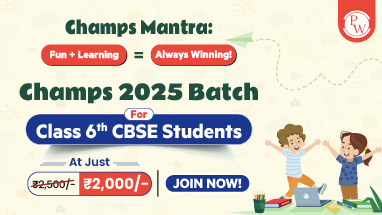
| CBSE Syllabus Class 6 | |
| CBSE Class 6 Science Syllabus | CBSE Class 6 Maths Syllabus |
| CBSE Class 6 Social Science Syllabus | CBSE Class 6 English Syllabus |
MULTIPLE CHOICE QUESTIONS
Choose the correct option to complete the statements given below: (i) The number of major religions in the world is ………………… (a) six (b) seven (c) eight (d) nine. (ii) An important reason why Muslim girls do not attend a school or drop out of school after a few years is …………. (a) poverty (b) superstition (c) lack of willingness to go to school (d) None of the above. (iii) ……… the community was treated as untouchables in the Bombay Presidency. (a) Koli (b) Mahar (c) Nayar (d) Munda. (iv)……… is known as the leader of the Dalits. (a) Dr. Rajendra Prasad (b) Guru Teg Bahadur (c) Dr. Bhim Rao Ambedkar (d) Sardar Valla Bhai Patel (v) India is a secular country—It means ……………… (a) People of different religions have the freedom to practise their religion with any discrimination. (b) People of a single religion, i.e. Hindus are allowed to live in the country. (c) People of India have the freedom to live in any part of the country. (d) All Indians are equal on the basis of caste and creed. Answer:(i) – (c), (ii) – (a), (iii) – (b), (iv) – (c), (v) – (a).
FILL IN THE BLANKS
Fill in the blanks with appropriate words to complete each sentence.- ……… fought for the rights of the Dalits.
- The upper castes did not give the so-called ……………….. the same rights as they enjoyed.
- If you do something to put other people down, you are ………………. against them.
- People usually form certain attitudes and opinions about others who Are not them.
- ……. stop us from looking at each person as a unique individual with his/her own special qualities and skills that are different from others.
- Dr. Bhim Rao Ambedkar
- untouchables
- discriminating
- like
- Stereotypes.
TRUE/FALSE
State whether these sentences are true (T) or false (F).- We have more than 1600 languages that are people’s mother tongues.
- We feel secure with people who are very different from us.
- Dalits are referred to as Scheduled Tribe (ST).
- Dr. Bhim Rao Ambedkar belonged to the Mahar caste which was considered untouchable.
- Government jobs are open to the people who come from the upper caste.
- True
- False
- False
- True
- False.
CBSE Board Exam Centre List 2024
MATCHING SKILL
Match the items in column A correctly with those given in column B.
Ans. (i)—(c), (ii)—(a), (iii)—(d), (iv)—(c).
VERY SHORT ANSWER TYPE QUESTIONS
1. How do we feel in the company of the people who are very much like us?
Ans: We feel safe and secure in the company of such people. 2. Define the term ‘prejudice’ with an example. Ans: Prejudice means to judge other people negatively or see them as inferior. For example, if we think that Hindi is the best language and other languages are not important, we are judging these other languages negatively. 3. How do parents often console boys when they fall and hurt themselves? Ans. Parents say, “Boys are brave, they don’t cry”. ‘ 4. Mention one drawback of stereotypes. [Imp.] Ans: Stereotypes prevent us from doing certain things that we might otherwise be good at. 5. ‘Some people may experience both kinds of discrimination. ’ What do you mean by ‘both kinds of discrimination’? . [V. Imp.] Ans: Some people are poor and they belong to groups whose culture is not valued. 6. Mention some activities which are considered less valued. Ans: Activities like cleaning, washing, cutting hair, picking garbage are considered less valued. 7. Who was Bhim Rao Ambedkar? Ans: He was a noted Dalit leader. He himself was a Dalit and fought for the rights of the Dalits. 8. What is it that can unite all Indians? [V. Imp.] Ans: It is equality of all persons that can unite all Indians. 9. What responsibility has been placed on the government by the Constitution? Ans: It is the responsibility of the government to take specific steps to realise the right to equality for poor and other marginal communities. 10. ‘India is a secular country’. What does this mean? Ans: This means that people of different religions and faiths have the freedom to practise and follow their religion without any fear of discrimination. 11. What does the first page of our Constitution proclaim? Ans: All Indians are entitled to equality of status and opportunity.SHORT ANSWER TYPE QUESTIONS
1. What do you mean by difference and prejudice? [V. Imp.]
Ans: Variation occurs when people use language differently or have diverse backgrounds, like in status, religion, education, or where they live. This is normal. Prejudice is having a negative opinion about those who are not like us. 2. What is the demerit of the ‘stereotype’ view? Ans: Stereotyping is a bad thing. It stops us from seeing someone as a special person. We forget about their good qualities. We only see them in a certain way, and we don't consider that they might be good in other ways. 3. How does discrimination occur? [V. Imp.] Ans: Prejudice and stereotypes lead to negative effects in society, creating discrimination. This happens when we act based on preconceived notions, causing ignorance towards a specific group or person. This exclusion denies them access to various opportunities.LONG ANSWER TYPE QUESTIONS
1. Differentiate between inequality and discrimination. [V. Imp.]
Ans: Inequality and discrimination are distinct ideas, yet closely linked. Inequality arises from distinctions in caste, creed, culture, language, region, economic status, educational background, and more. Individuals vary across society. Discrimination occurs when someone treats another person or group unfairly based on these differences. It usually stems from a whim or prejudice. Exploiting someone of lower status in any manner is considered discrimination. The affected individual or community misses out on the common opportunities or facilities provided by society. This is not conducive to a healthy society. 2. What are the Constitutional provisions for establishing equality in Indian society? Do you think these are enough? , Ans: Since the early days of our society, India has faced issues of inequality and discrimination. The community was split into four main castes, with most opportunities limited to the upper class. Some castes were so looked down upon that people feared them. This led to a significant gap in society. As education spread, awareness against this unjust system grew. When India gained independence, the framers of the Constitution strongly opposed this system and declared it a crime. The Constitution promised equality and protection against discrimination for all citizens. Reservations were introduced for those facing discrimination in various aspects of life. However, the reality is that the system persists. Relying solely on constitutional measures is not sufficient. Despite reservations, these individuals often lag behind, choosing to earn a living rather than attending school. There is a need for a mandatory education system, and widespread awareness is crucial; otherwise, our hopes for change may be in vain.Benefits of NCERT Solutions for Class 6 Social Science Civics Chapter 2
NCERT (National Council of Educational Research and Training) Solutions for Class 6 Social Science Civics Chapter 2, titled "Diversity and Discrimination," play a crucial role in enhancing the learning experience of students. These solutions are designed to provide comprehensive support to students, aiding them in understanding the concepts covered in the chapter. Here are some notable benefits of using NCERT Solutions for Class 6 Social Science Civics Chapter 2: 1. Conceptual Clarity: NCERT Solutions offer detailed explanations of concepts covered in the chapter. Students can achieve a clear understanding of the fundamental principles related to diversity and discrimination. This clarity helps in building a strong foundation for future learning. 2. Accurate and Reliable Information: NCERT is a reputable educational body, and its solutions are prepared by experienced educators and subject matter experts. The information provided in the solutions is accurate, reliable, and aligns with the curriculum, ensuring that students receive high-quality content. 3. Structured Format: The solutions are presented in a structured format, making it easy for students to follow the flow of information. Each topic is addressed systematically, enhancing the overall organisation of the content. This structured format aids in better comprehension and retention. 4. In-Depth Analysis: NCERT Solutions for Class 6 Social Science Civics Chapter 2 delve into the topics with in-depth analysis. This allows students to explore different aspects of diversity and discrimination, promoting a more profound understanding of the subject matter. 5. Practice Questions and Exercises: The solutions include a variety of practice questions and exercises at the end of each chapter. These questions are aligned with the CBSE (Central Board of Secondary Education) guidelines and help students reinforce their learning. Regular practice using these questions contributes to improved problem-solving skills. 6. Exam Preparation: As the solutions cover a wide range of questions, including those that are likely to appear in exams, students can use them as valuable resources for exam preparation. The solutions provide insights into the types of questions that may be asked, helping students prepare more effectively. 7. Multimedia Resources: In today's digital age, NCERT often provides multimedia resources, including videos and interactive content, to supplement the textbook material. These resources can enhance the learning experience, making it more engaging and enjoyable for students. 8. Promotion of Critical Thinking: The solutions encourage critical thinking by presenting thought-provoking questions and scenarios. This approach helps students develop analytical skills and fosters a deeper understanding of the issues related to diversity and discrimination. 9. Alignment with CBSE Curriculum: NCERT Solutions are closely aligned with the CBSE curriculum, ensuring that students receive content that is relevant to their course of study. This alignment facilitates a seamless learning experience and minimises the risk of deviation from the prescribed syllabus.How to Prepare with NCERT Solutions for Class 6 Social Science Civics Chapter 2
Preparing for Class 6 Social Science Civics Chapter 2, "Diversity and Discrimination," with NCERT Solutions can be a systematic and effective approach. NCERT Solutions are comprehensive and aligned with the curriculum, making them an excellent resource for understanding concepts and preparing for exams. Here's a detailed guide on how to use NCERT Solutions for Class 6 Social Science Civics Chapter 2: 1. Understand the Chapter: Start by reading the chapter thoroughly. Understand the key concepts, terms, and topics covered in "Diversity and Discrimination." Pay attention to the examples and case studies provided in the chapter, as these are often the basis for questions in exams. 2. Read NCERT Solutions: After reading the chapter, go through the NCERT Solutions for Class 6 Social Science Civics Chapter 2. These solutions provide step-by-step explanations for each question and topic covered in the chapter. Make sure to understand the solutions thoroughly, as they often contain additional information that can enhance your understanding of the topic. 3. Take Notes: While going through the NCERT Solutions, take notes on important points, definitions, and explanations. Create a summary of each section to aid in quick revision later. Focus on understanding the reasons behind diversity and discrimination, as well as the consequences of discrimination in society. 4. Practice Questions: NCERT Solutions provide a set of practice questions at the end of each chapter. Solve these questions to reinforce your understanding of the concepts. Pay attention to the variety of question types, including multiple-choice, short answer, and descriptive questions. This will help you be prepared for different types of exam questions. 5. Discuss with Peers or Teachers: If you come across any challenging concepts or questions, discuss them with your classmates or teachers. Engaging in discussions can provide different perspectives and help clarify doubts. Teachers can provide additional insights and explanations, ensuring that you have a comprehensive understanding of the chapter. 6. Use Additional Resources: While NCERT Solutions are comprehensive, you can supplement your learning with other resources such as reference books, online materials, or videos that cover the topics in Chapter 2. This can provide a broader perspective and reinforce your understanding of the subject. 7. Regular Revision: Schedule regular revision sessions to go through the chapter and your notes. Use flashcards or summary sheets to quickly revise key points. Regular revision helps in retaining information and ensures better recall during exams. 8. Solve Sample Papers: Practise solving sample papers or previous years' question papers. This will help you become familiar with the exam pattern and time management. Analyse your performance and identify areas that need further revision. 9. Seek Help if Needed: If you face difficulties in any specific topic, don't hesitate to seek help from your teacher or classmates. Clarifying doubts promptly is crucial for a strong foundation. 10. Stay Consistent: Consistency is key to effective preparation. Set a study schedule and stick to it. Break down your study sessions into manageable chunks to avoid feeling overwhelmed.NCERT Solutions for Class 6 Social Science Civics Chapter 2 FAQs
How does Chapter 2 of Civics lay the foundation for citizenship education?
Chapter 2 forms the basis for citizenship education by fostering awareness and understanding of different cultures, promoting tolerance, and emphasising the importance of equal treatment.
Are there online forums where students can discuss Civics Chapter 2?
Yes, various online forums and social media groups provide platforms for students to discuss Civics Chapter 2, share insights, and seek clarification on doubts.
Can Civics Chapter 2 be connected to other subjects in Class 6?
Yes, the themes of diversity and discrimination in Chapter 2 can be linked to subjects like History, Geography, and even Language Arts, creating interdisciplinary connections for a holistic learning experience.
How do NCERT Solutions cater to different learning styles in Civics?
NCERT Solutions offer a diverse range of explanations, examples, and activities, catering to different learning styles by providing a well-rounded approach to understanding Civics Chapter 2.
What long-term benefits can students gain from mastering the concepts in Chapter 2?
Mastering the concepts in Chapter 2 not only ensures success in immediate exams but also equips students with essential life skills such as empathy, cultural understanding, and the ability to address discrimination.
Talk to a counsellorHave doubts? Our support team will be happy to assist you!

Check out these Related Articles
Free Learning Resources
PW Books
Notes (Class 10-12)
PW Study Materials
Notes (Class 6-9)
Ncert Solutions
Govt Exams
Class 6th to 12th Online Courses
Govt Job Exams Courses
UPSC Coaching
Defence Exam Coaching
Gate Exam Coaching
Other Exams
Know about Physics Wallah
Physics Wallah is an Indian edtech platform that provides accessible & comprehensive learning experiences to students from Class 6th to postgraduate level. We also provide extensive NCERT solutions, sample paper, NEET, JEE Mains, BITSAT previous year papers & more such resources to students. Physics Wallah also caters to over 3.5 million registered students and over 78 lakh+ Youtube subscribers with 4.8 rating on its app.
We Stand Out because
We provide students with intensive courses with India’s qualified & experienced faculties & mentors. PW strives to make the learning experience comprehensive and accessible for students of all sections of society. We believe in empowering every single student who couldn't dream of a good career in engineering and medical field earlier.
Our Key Focus Areas
Physics Wallah's main focus is to make the learning experience as economical as possible for all students. With our affordable courses like Lakshya, Udaan and Arjuna and many others, we have been able to provide a platform for lakhs of aspirants. From providing Chemistry, Maths, Physics formula to giving e-books of eminent authors like RD Sharma, RS Aggarwal and Lakhmir Singh, PW focuses on every single student's need for preparation.
What Makes Us Different
Physics Wallah strives to develop a comprehensive pedagogical structure for students, where they get a state-of-the-art learning experience with study material and resources. Apart from catering students preparing for JEE Mains and NEET, PW also provides study material for each state board like Uttar Pradesh, Bihar, and others
Copyright © 2026 Physicswallah Limited All rights reserved.
